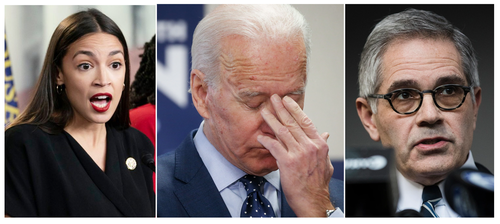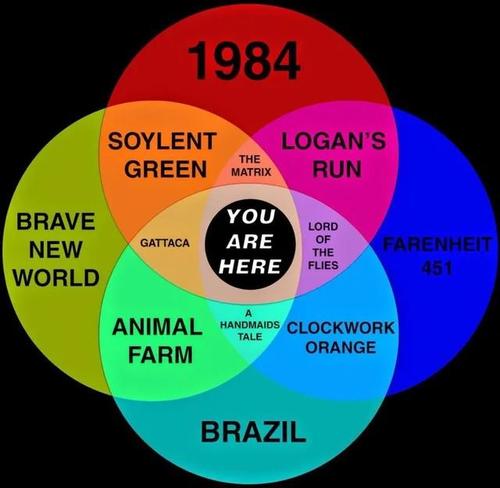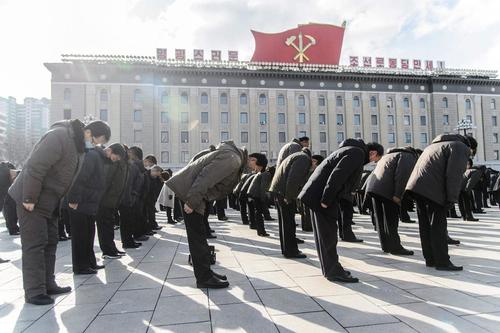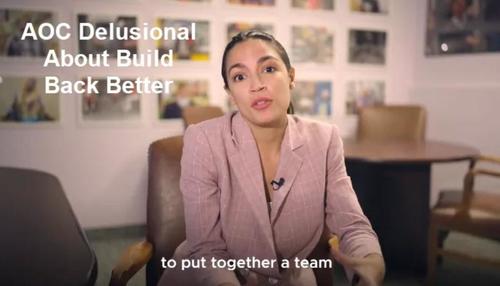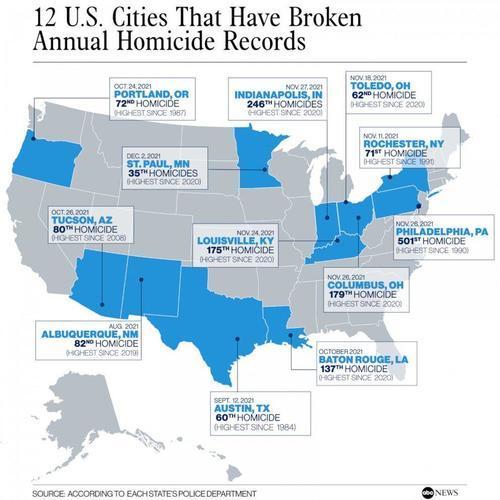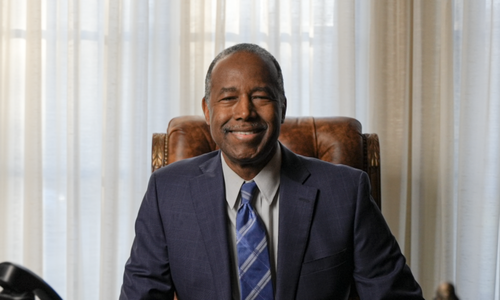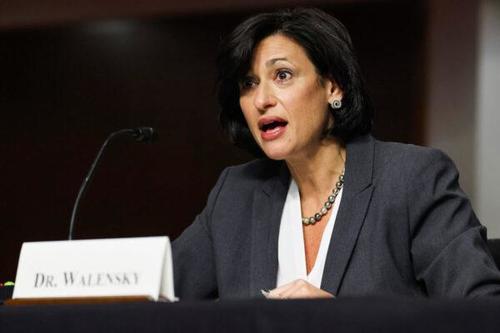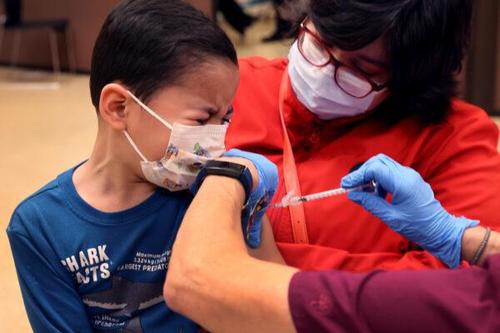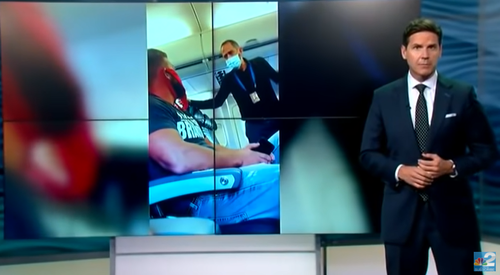Authored by Brad Jones via The Epoch Times,
A mixed crowd of more than 150 people packed a school board meeting in Salinas, Calif., on Dec. 15 as frustrated parents clashed with supporters of two teachers accused of subverting parents and recruiting middle school students into a Gay-Straight Alliance (GSA) club.
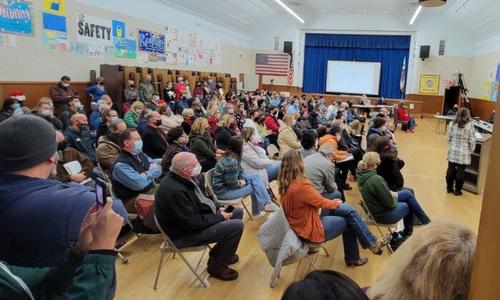
Jessica Konen, one of about 30 people who spoke during an extended public comment period, told the board that school staff indoctrinated her child and usurped her parental authority.
Konen blasted the board and accused teachers and staff of coaching her gender dysphoric daughter through the Equality Club, an LGBTQ+ support group now called the You Be You (UBU) Club at Buena Vista Middle School.
“I stand here today in front of all of you because I am outraged. Is this really barely coming to light? Are you guys serious?” she said.
“How could you even allow this? How could you even have this meeting to question it? How dare you let these teachers come in and act as if they have done nothing wrong? A mistake? How long of a mistake?”
Konen went public with her story after controversy erupted over an audio recording leaked to “Irreversible Damage” author Abigail Shrier and The Epoch Times that revealed two teachers at a California Teachers Association (CTA) conference dismissing parents’ concerns about homosexual and transgender indoctrination at school.
The two seventh-grade teachers from Buena Vista Middle School in Salinas, Calif., were recorded coaching other teachers how to hide the nature of Lesbian, Gay, Bisexual, Transgender, Queer, or Questioning (LGBTQ+) Clubs, also known as GSA clubs, from parents. They led a workshop called “How we run a ‘GSA’ in Conservative Communities” at the CTA’s “2021 LGBTQ+ Issues Conference, Beyond the Binary: Identity & Imagining Possibilities” in Palm Springs, Calif., from Oct. 29 to 31.
Spreckels Union School District (SUSD) has since suspended the teachers with pay pending the outcome of an independent third-party investigation.
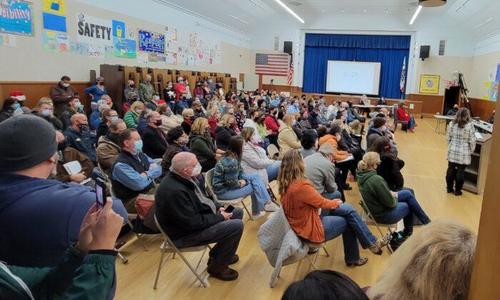
A school board meeting in Salinas, Calif., on Dec. 15, 2021. (Courtesy of Josey Schenkoske)
At the Dec. 15 Spreckels Union School District (SUSD) meeting, Konen accused Buena Vista Middle School staff of failing to tell her that child might be having suicidal thoughts based on internet searches, while some school staff allegedly knew about them.
“They didn’t tell me that my child was suicidal,” she said. “You allow these teachers to open their classrooms, teaching predatorial information to a young child, a mindful child that doesn’t even know how to comprehend it all. How do you not know what’s going on your own campuses? Did you think that no parent would ever come forward? You will not quiet me today. I will stand here today and protect my child along with every other child who has not come forward yet.”
“Do they have psychiatry degrees that I was unaware of, because I didn’t hire them? I did not hire them to sit there and nitpick my child’s brain. You took away my ability to parent my child,” Konen added.
She accused Buena Vista Middle School teachers and administrators of contributing to her daughter’s gender confusion.
“You planted seeds,” she said. “Your job was to educate my child in math, science, English, etc. Do your job and let me do mine!”
Parents cheered and applauded her speech.
Preceding Konen’s comments, her father, Gunter Konen, told the board he was infuriated when he found out how Konen and his granddaughter had been treated. He said his granddaughter was a straight-A student before she was “coached” by staff on gender issues.
“She’s the one that’s confused, because she was coached,” he said.
“[Child Protective Services] was called on my daughter because she went to school to have a discussion with the teacher for hiding the fact that [her daughter] was given a new name—a boy’s name,” he said.
Suggesting to a girl that she may be a boy or to a boy he may be a girl is wrong, he said.
“That’s just vile nonsense,” he said.
“I think education needs to be grounded on truth,” Gunter Konen said. “I just feel that our kids are impressionable at that age, and we should keep the parents informed. I say resign or repent.”
Cheryl Duffus, a parent of two boys who attended Buena Vista Middle School said she has complained to administration multiple times about how one of the teachers had taken pushed LGBTQ activism to “unacceptable” levels.
“On one occasion, I picked my youngest one up from school during an all-school assembly, where he and other students were supposed to walk under a rainbow arch in the inner court to support the club. This was an all-school event, not just for members of the GSA club,” Duffus said.
After the incident, the principal assured Duffus he would talk to one of the teachers about the activism and ask her to “tone it down.”
Duffus said four other parents made similar complaints to Tarallo the same year: 2015.
“This issue is not about a GSA club on campus. It has nothing to do with that. This issue is about deceiving parents, stalking children, and these are children. They’re 12 years old,” she said.
What happened to Jennifer Konen and her family was “horrific,” she said.
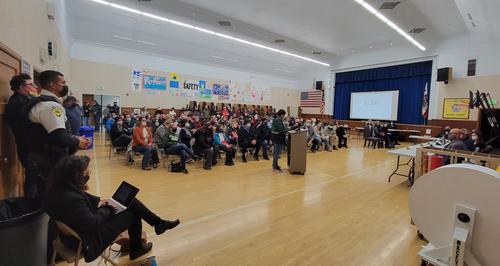
A crowd of more than 150 people packed a school board meeting in Salinas, Calif., on Dec. 15, 2021. (Courtesy of Josey Schenkoske)
Board Comments
Trustee Michael Scott said he supports the decision to conduct a third-party investigation surrounding the UBU Club in light of the leaked audio.
However, he accused Shrier of framing what’s happening with transgender youth “in terms of a war.”
“We are not at war here. Everyone loses in a war,” Scott said. “War is completely contrary to our core values of compassion, kindness, and respect. I believe we should do everything we can to support and be inclusive,” Scott said.
“I am hopeful the third-party investigation will provide a clearer picture of the circumstances surrounding the UBU Club,” he said.
Any subsequent action should be responsive to the values, beliefs, and priorities of the community which are to be inclusive and “social emotionally” supportive.
“As we navigate this situation, I hope we can adhere to the values of compassion, kindness, and respect,” Scott said.
Other trustees called for the same values.
“I just want to stress my commitment to the support and safety of all of our students,” said Trustee Stephanie McMurtrie Adams. “I will continue to work to ensure equity for all of our students, both academically and socially, emotionally.”
“I, too, would like to echo was previously been said,” Trustee Jennifer Kato said.
Supt. Eric Tarallo said the UBU Club “has not been disbanded,” but has been suspended while the investigation is carried out. He called for kindness, respect and civility.
“We’re living through incredibly difficult and divisive times, that seem get worse every month,” Tarallo said.
SUSD President Steve McDougall said the district has received hundreds of emails since the controversy surfaced in mid-November and that SUSD is doing its best to deal with the situation.
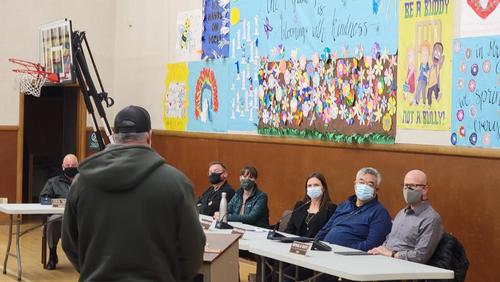
A man speaks at a school board meeting in Salinas, Calif., on Dec. 15, 2021. (Courtesy of Josey Schenkoske)
“We’re going to do it right. We’re going to do it within the law. We’re going to find out what we need to do moving forward once this independent investigation has concluded at that time, and not before. And that’s the way it’s going to be if I’m going to be involved with it,” he said.
Vicki Nohrden, a parent and grandparent, blasted the board for preaching about compassion, kindness and respect while disregarding parental rights.
“Respect is so important,” she said. “What I think is lacking is we are not respecting the parents when parents don’t have a voice and a place of authority in their children’s world, and the school seeks to undermine that authority.”
Nohrden called for school choice, “because when monies aren’t being spent in the way they should be spent to educate our children with an education—not an indoctrination—then things are out of order.”
She touted Shrier’s book “Irreversible Damage,” which examines the alarming surge in gender dysphoria among teenage girls.
Nohrden criticized school staff for reporting parents to Child Protective Services (CPS) for not using transgender names and pronouns of their child’s choosing, or for not being “emotionally supportive” enough in the minds of some activist teachers.
“The thing that concerns me the most is when schools want to undermine the authority of the parents,” she told the board.
“I worked as a court-appointed special advocate for children. I really care about the community, but when somebody disagrees with a mindset and then sends CPS to somebody’s house, I say that is absolutely out of order,” Nohrden said.
Grant Cremers, a father of three children who attended SUSD schools including Buena Vista, said he supports the UBU, but not how it was run. He suggested that the entire board and administration should be investigated, not just the two teachers.
“There’s a history here. The board probably needs to be part of the investigation, not overseeing the investigation,” he said.
“This is not easy to talk about,” he said. “These were teachers that we knew and supported in the classroom, and their actions have gone too far. They’ve used predatory tactics to push political activism on our school grounds to our children.”
Tanya Navarro said the controversy is not that a LGBTQ+ support club exists, but the way in which the teachers conducted themselves and the way it was run. She called for a district-wide investigation, and suggested police—not a third-party investigation firm—should lead it.
Navarro said there should have been more transparency about the intent of the UBU club, so that parents, like herself, would have had a chance to explain to their children “what our convictions and our religions and our perspectives and ideologies are.”
“But, when you force and impose upon them, that is immoral. That is wrong,” she said.
Teacher Supporters
Katherine Beck, a former student who said she attended the LGBTQ+ club at Buena Vista when it was called the “Equality Club,” expressed support for the club and the teachers who ran it.
“I first attended the UBU, then called the Equality Club, meeting when I was in the sixth grade,” she said. “I was not sought after. I was not pressured, and I was not forced into attending the meeting. Nor was I ever pressured or forced into being anyone but who I already was,” she said.
“I learned about the club the same way every other student at Buena Vista learned about the club; Through the club’s slide on morning announcements,” Beck said. “I joined the club because I was sick of dealing with lunchtime middle school drama. When I wanted to attend a meeting I did. And when I wanted to hang out my friends, I did that too. It’s true that the Equality Club did not keep records, did not take attendance, and did not have club officers, but that’s the case with all clubs at Buena Vista, including the Fellowship of Christian Athletes.”
During her time in the club, students led their own discussions on a wide range of topics “from racism to disabilities to Yes, LGBTQ issues,” Beck said.
The club was “never a secret to the school board, nor to the school administration,” she said.
Jennifer Ruttschow, whose children attend SUSD schools including Buena Vista, said she supports the two teachers, the UBU Club and the morning announcements, which one of the teachers said in the audio are used to promote LGBTQ inclusivity and the club.
“Suspending the UBU club and morning announcements that are created by students is a disservice to students, the very people that our district is here to serve,” Ruttschow said.
“I support these teachers being in the classroom and providing extracurricular activities so that my children are provided with opportunities not only to learn about kindness and inclusion, but opportunities to implement them in real life situations,” she said.
Sam Gomez, a former SUSD student of Buena Vista who is now the deputy director of The Epicenter, a youth-led support group for at-risk youth in Monterey County, told the board she wishes that LGBTQ clubs would have existed when she went to school.
“In 2006, I was a seventh grader at one of us the middle school. During this time, I was outed by a classmate, and shortly after the entire school learned about me being a part of the LGBTQ+ community. There were mixed reactions, including judgmental stares from peers, supportive encouragement from other classmates, and unfortunately the disapproval by some parents,” said Gomez.
Some of the parents would no longer allow their children to be friends with her, she said.
“As a 12-year-old child this negatively impacted my mental health and led to some seriously negative habits including self-harm. I did not have support at home, and I was terrified of being outed to my family at the time because of their negative views towards the LGBTQ+ plus community,” she said.
Gomez called for more resources for LGBTQ+ inclusivity at the school and “competency training” for teachers and staff.
Thomas Caldeira-Perry told the board there was no violation of students’ privacy and that the club has always been run with “full and utmost” transparency.
“I am the son of highly respected and award-winning teacher Lori Caldeira as well as a Buena Vista Middle School alumni. I am here to speak on behalf of my family, my mother on the impact that these recent events have had on us,” he said.
Perry attacked Shrier over her article based on the leaked audio recording.
“There are great many assumptions and accusations being made as a result of a political third-party blogger with a very clear anti-LGBT agenda, who’s looking only to boost the sales of her discredited book. While she sits completely uncaring of the destruction she has caused, my mother and Ms. Baraki continue to be victimized by targeted and hate speech due to the district’s knee-jerk reaction and fear-based response,” he said.
A source who goes by the pseudonym Rebecca Murphy attended the CTA conference. She told The Epoch Times following the SUSD board meeting that Shrier’s article was “spot on.”
“It was completely accurate,” she said.
Murphy said most parents would be “appalled” and “aghast” as she was to watch and listen to the two activist teachers describe the challenges they faced in concealing the nature of the GSA clubs from parents.
Meanwhile, Shrier told The Epoch Times in an email on Dec. 16, “I stand by every word of my reporting.”
Dalila Epperson said she has been attending school board meetings with other parents since late May.
“One of the things we’ve been noticing is that the school boards have not been listening to us,” she said.
Parents have been receiving leaked information similar to what Shrier wrote in her article for the last year and a half, Epperson said.
“That’s why the parents have been so upset,” she said.
Preceding the meeting, the Voices of Monterey Bay published a letter signed by several local politicians and community leaders in support of the You Be You (UBU) Club.
Assembly Member Mark Stone (D-Monterey Bay), who signed the letter, did not respond to inquiries preceding the Dec. 15 meeting.
The next SUSD school board meeting is set for Jan. 6.


